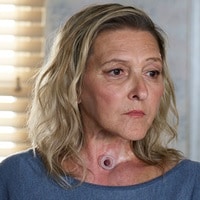Cancer Prevention Starts in Childhood
“I gave HPV vaccine to both my sons when they turned 11,” says pediatrician Dr. Jose Rodriguez in this video.
You can lower your children’s risk of getting cancer later in life by getting them vaccinated against HPV and helping them make healthy choices.
Get Your Kids Vaccinated Against HPV
Human papillomavirus (HPV) is a common virus that is passed from one person to another during sex. It can cause cervical and other kinds of cancer. Some cancers of the vulva, vagina, penis, anus, and oropharynx (back of the throat, including the base of the tongue and tonsils) are caused by HPV.
The HPV vaccine protects against the types of HPV that most commonly cause cancer. Both boys and girls should be vaccinated when they are 11 or 12 years old. The vaccine can be given to teen girls and young women through 26 years and teen boys and young men through 21 years who weren’t vaccinated when they were younger.
“My cancer was caused by a virus that I contracted at least 15 years before,” says Teresa. She was diagnosed with vulvar cancer at age 40.
“I’m cancer-free now, but every time I get checked, I am anxious about what the tests will reveal. Because the virus still lives within me, I never know if I’ll ever hear those dreaded words again,” she says.
“I often counsel young girls and their parents to get the vaccine to avoid my fate. If you have children who are preteens or teens, please get them vaccinated against HPV.”
Talk to Your Kids About Smoking and Cancer
Nearly 9 out of 10 people who smoke cigarettes first try them by age 18, and 98% by age 26. In 2018, more than 1 in 4 high school students and about 1 in 14 middle school students had used a tobacco product in the past 30 days. Talk to your children about why you don’t want them to smoke.
“Everybody smoked. That was like the cool thing to do,” says Sharon, who smoked her first cigarette at age 13 and was diagnosed with throat cancer at age 37.
“Peer pressure—that’s why I started. My granddaughter, she’s 12 years old,” Sharon says. She fears her granddaughter will start smoking, too. “Don’t even start because it doesn’t take long to get hooked,” she says.
Smoke from other people’s cigarettes (secondhand smoke) can cause serious health problems in children and adults, including lung cancer in adults who have never smoked. Don’t expose your children to secondhand smoke. For help quitting, visit smokefree.gov.
Stay Safe in the Sun

“I embrace my fair skin and the sun-safety look,” says Ginny, shown here with her family.
“Even though I knew I had almost every risk factor for skin cancer—a lighter natural skin color, red hair, and a lot of sun exposure from my teen years as a lifeguard—I fell into the far too common trap of thinking that skin cancer wouldn’t happen to me,” says Ginny. Two cancers have been removed from her face.
“After skin cancer, I realized how much of my daily life takes place outside, running, walking the dog, and going to the park. No one is immune from habits and decisions from our younger days. But it’s never too late to practice good health habits, including protecting our skin from the sun.”
Just a few serious sunburns can increase your child’s risk of skin cancer later in life.Our sun safety tips can help you protect their skin from the sun.


































No hay comentarios:
Publicar un comentario